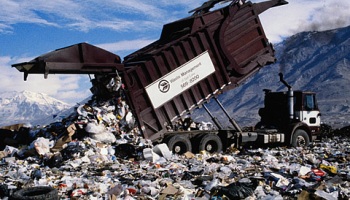Onus On Manufacturers To Stop Digital Dumping

ICT manufacturers worldwide should make the entire life-cycle of their products environmentally friendly, says Computer Aid
In an effort to tackle the rising amount of e-waste, Computer Aid International is calling for ICT manufacturers to take responsibility for the environmental cost of their products throughout their entire life-cycle, in every country they operate in.
In its report, “Green ICT: What Producers Must Do,” the charity named original equipment manufacturers (OEMs) as the major cause of electronic-waste crisis.
 The research shows that the most environmental damage from computing occurs during the production stage, claiming 80 percent of the energy used over each PC’s life-cycle is consumed before it is switched on for the first time.
The research shows that the most environmental damage from computing occurs during the production stage, claiming 80 percent of the energy used over each PC’s life-cycle is consumed before it is switched on for the first time.
To solve this issue, the charity has urged ICT producers to ensure more environmentally-friendly design of their products as well as their end-of-life treatment.
Green practice in all countries
According to the report, the situation is less of a concern in European countries, where all ICT producers are required by law to fund the end-of-life recycling of their equipment.
In less-developed countries, however, a lack of legal enforcement means fewer “green credentials”.
“We would argue that they have exactly the same moral obligations where there products are sold in Africa, Asia and elsewhere. Most developing countries are entirely without the kind of facilities necessary to re-use and recycle ICTs,” said Tony Roberts, Founder and CEO of Computer Aid International.
Europe’s EPR should be applied globally
 Meanwhile, Haley Bowcock, environmental advocacy officer at Computer Aid, recommended the implementation of Europe’s Extended Producer Responsibility (EPR) principle globally as a sustainable solution.
Meanwhile, Haley Bowcock, environmental advocacy officer at Computer Aid, recommended the implementation of Europe’s Extended Producer Responsibility (EPR) principle globally as a sustainable solution.
Under EPR, manufacturers are responsible for the end-of-life management of their products in all countries they operate in.
IT also shifts the cost of toxic, wasteful design from communities and the environment back to the producers, who also have to include the real costs of their goods through eco-friendly EPR programmes.
“The growing e-waste crisis demands of us a fundamental rethink of how we design, use and dispose of electronic equipment. ICT and other electronics manufacturers are really in the hot seat to lead a new resourcing paradigm by making longer-lasting products which are easier to repair and upgrade and eventually recycle,” said Bowcock.
Last week, the IT charity has also announced it is calling for donations of unwanted computer equipment to help the less fortunate this Christmas.